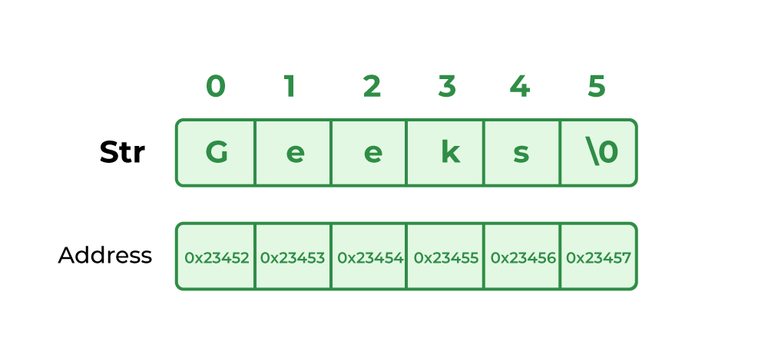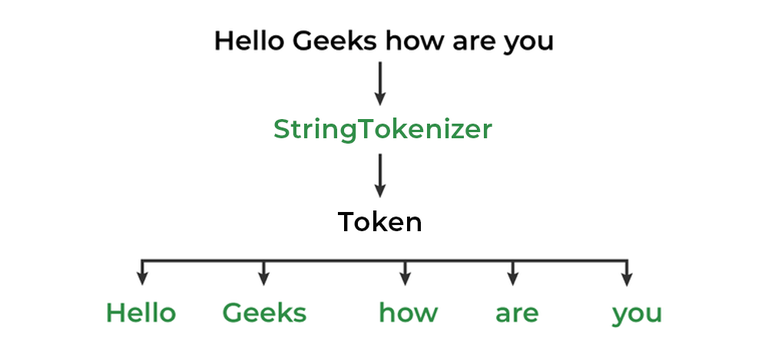Why Are Strings Immutable in Java? Secret Reasons and Advantages Described
Why Are Strings Immutable in Java? Secret Reasons and Advantages Described
Blog Article
Immutable Strings: A Trick Component in Ensuring Information Uniformity and Integrity
In the world of information administration, the relevance of immutable strings can not be overstated. The principle of unalterable strings goes beyond simple triviality; it is a cornerstone in the facility internet of data administration.
The Concept of Immutable Strings
Immutable strings, an essential principle in programs, refer to strings that can not be modified when they are produced. Basically, once a string worth is designated, any kind of operation that appears to modify the string in fact creates a new string. This immutability makes sure data uniformity and integrity in applications, as it prevents unanticipated modifications to the initial data.
Benefits in Information Uniformity

Data consistency is vital in various aspects of software application advancement, including database administration, multi-threaded atmospheres, and distributed systems (Why are strings immutable in Java?). Unalterable strings add substantially to attaining this uniformity by protecting against data corruption due to concurrent gain access to. In situations where multiple processes or strings connect with the exact same data all at once, unalterable strings serve as a guard versus race conditions and synchronization concerns
Moreover, the immutability of strings simplifies debugging and testing processes. With immutable strings, programmers can trust that when a string is set, it will certainly remain unmodified, making it easier to trace the source of errors and making sure that test situations produce constant results. This reliability in data managing inevitably brings about extra robust and steady applications.

Applying Immutable Strings
Making sure the immutability of strings calls for a thoughtful technique to their application in software development. One crucial method is to create string courses in a way that protects against alterations as soon as a string things is produced. By making strings unalterable, designers can boost information uniformity and integrity in their applications.
To implement unalterable strings efficiently, designers ought to prefer producing new string things rather than changing existing ones. This method makes sure that once a string is appointed a value, it can not be altered. Furthermore, any type of procedure that appears to modify the string should produce a new string with the desired adjustments as opposed to changing the initial.
Additionally, utilizing immutable strings can simplify concurrency monitoring in multi-threaded atmospheres. Given that unalterable strings can not be transformed after creation, they can be securely shared amongst multiple threads without the danger of information corruption.
Role in Dependability Guarantee
In software application development, the application of immutable strings plays a crucial function in guaranteeing the dependability of data operations. Unalterable strings, once created, can not be modified, guaranteeing that the information they stand for stays regular throughout the application's execution. This immutability home gives a degree of guarantee that the data being processed will not be accidentally transformed, causing unforeseen end results or view website mistakes in the system.
By including immutable strings right into software program design, developers can boost the dependability of their applications by minimizing the risks linked with mutable data - Why are strings immutable in Java?. Unalterable strings help in protecting against information corruption or unintentional adjustments, which can be particularly vital when handling sensitive info or when information integrity is critical
Moreover, making use of immutable strings simplifies concurrent handling, as several threads can safely gain access to and share string data without the danger of one string modifying the material while one more reads it. This facet contributes considerably to the overall reliability of the software system, making certain predictable and consistent habits in data dealing with procedures.
Applications and System Integration
The smooth combination of immutable strings right into numerous applications and systems is pivotal for making sure durable information uniformity and integrity throughout diverse technical environments - Why are strings immutable in Java?. Unalterable strings play an important function in improving the honesty of information exchanges and interactions within complex software application ecosystems. By integrating unalterable strings right into applications, developers can mitigate the risks linked with data tampering, unauthorized adjustments, and inadvertent alterations, thus strengthening the overall safety and security position of the system
Unalterable strings can enhance interoperability in between disparate systems by supplying a standard layout for information representation, enabling more efficient data processing and exchange methods across interconnected platforms. Recommended Reading By taking on immutable strings in applications and system integration procedures, companies can strengthen their data facilities and support the integrity and uniformity of their info assets.
Verdict
Finally, unalterable strings play a critical function in maintaining data uniformity and dependability in different applications and system assimilations. By making sure that strings can not be altered once created, the stability of data is preserved, minimizing the risk of incongruities and mistakes. Applying immutable strings can substantially enhance the reliability of systems, inevitably resulting in more exact and reliable data processing.

Report this page